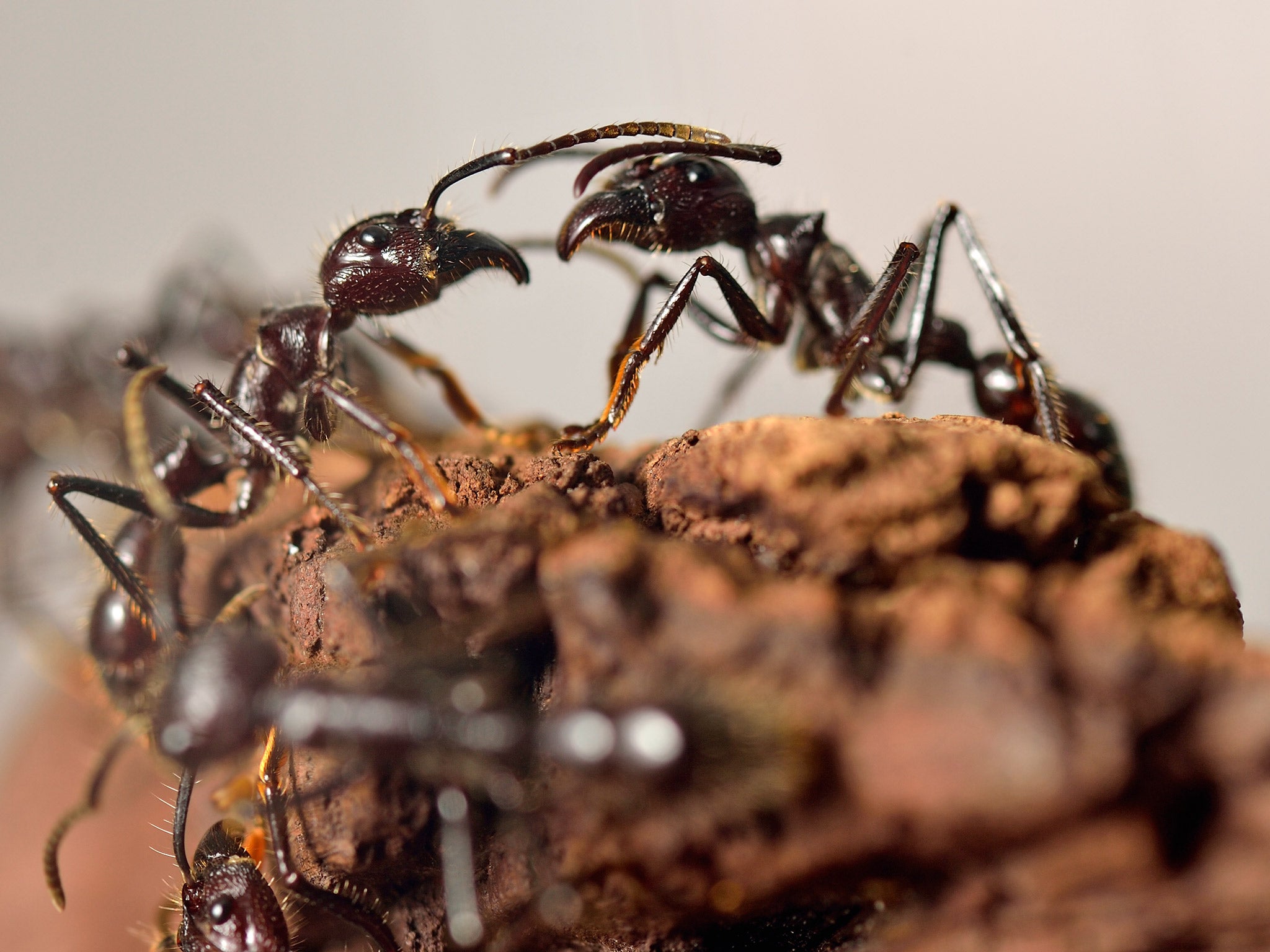Insects are conscious, claims major paper that could show us how our own thoughts began
The study could mark a major step forward in arguments about how, why and when consciousness came about, and who gets to have it

Your support helps us to tell the story
From reproductive rights to climate change to Big Tech, The Independent is on the ground when the story is developing. Whether it's investigating the financials of Elon Musk's pro-Trump PAC or producing our latest documentary, 'The A Word', which shines a light on the American women fighting for reproductive rights, we know how important it is to parse out the facts from the messaging.
At such a critical moment in US history, we need reporters on the ground. Your donation allows us to keep sending journalists to speak to both sides of the story.
The Independent is trusted by Americans across the entire political spectrum. And unlike many other quality news outlets, we choose not to lock Americans out of our reporting and analysis with paywalls. We believe quality journalism should be available to everyone, paid for by those who can afford it.
Your support makes all the difference.Insects have a form of consciousness, according to a new paper that might show us how our own began.
Brain scans of insects appear to indicate that they have the capacity to be conscious and show egocentric behaviour, apparently indicating that they have such a thing as subjective experience.
And those same scans could show the true origins of consciousness in humans other animals - working towards solving one of the deepest mysteries of human experience.
The study - written by Andrew B Barron and Colin Klein, and published in the Proceedings of National Academy of Sciences - worked by taking detailed scans of the neurological systems of insect brains, and compared them with those of insects.
They found that in both, consciousness appeared to be associated with the “midbrain”. That part of the brain is the ancient core of the brain, which supports awareness for us and apparently for insects, too.
Though insects have tiny brains, they appear to serve the same function that the midbrain does for humans. They are able to tie together memory, perception and other key parts of consciousness, and use it to decide what to do - which is the same function that human’s brains do.
If the researchers are correct about the insects’ consciousness, then it will allow them to look at the characteristic with far more detail. Bees brains are far less complicated than - and that makes them far easier to study.
The scientists behind the paper say that “insect consciousness” is a complicated phrase, and it is so important to clarify what is meant. Everyone agrees, for instance, that bees can take information from their world, perform computations on it and act on that information.
Instead, scientists are looking for evidence of whether or not insects can feel and sense their world from their own perspective.
Traditionally, philosophers and scientists have looked to understand whether that is the case by looking at the behaviour of the insects or other animals. But they are now looking at the specific neural make-up of the animals they are studying.
Clearly, the specific make-up of the insect brain means that their experience of consciousness is going to be different from that of a human.
“Their experience of the world is not as rich or as detailed as our experience – our big neocortex adds something to life!” the scientists wrote recently. “But it still feels like something to be a bee.”
It’s probably the case that only humans have the ability to self-reflect - a complicated process that allows us to be aware that we are aware of things. But we still spend much of our time not doing that, being conscious in the more straightforward way.
The scientists hope that those similarities could allow them to understand subjective experience in an entirely new and scientific way.
“By clarifying the environmental demands that press animals to evolve the capacity for consciousness, we might thus shed light on the relationship between subjectivity and the external world,” the two wrote in a recent piece on The Conversation.
Join our commenting forum
Join thought-provoking conversations, follow other Independent readers and see their replies
Comments